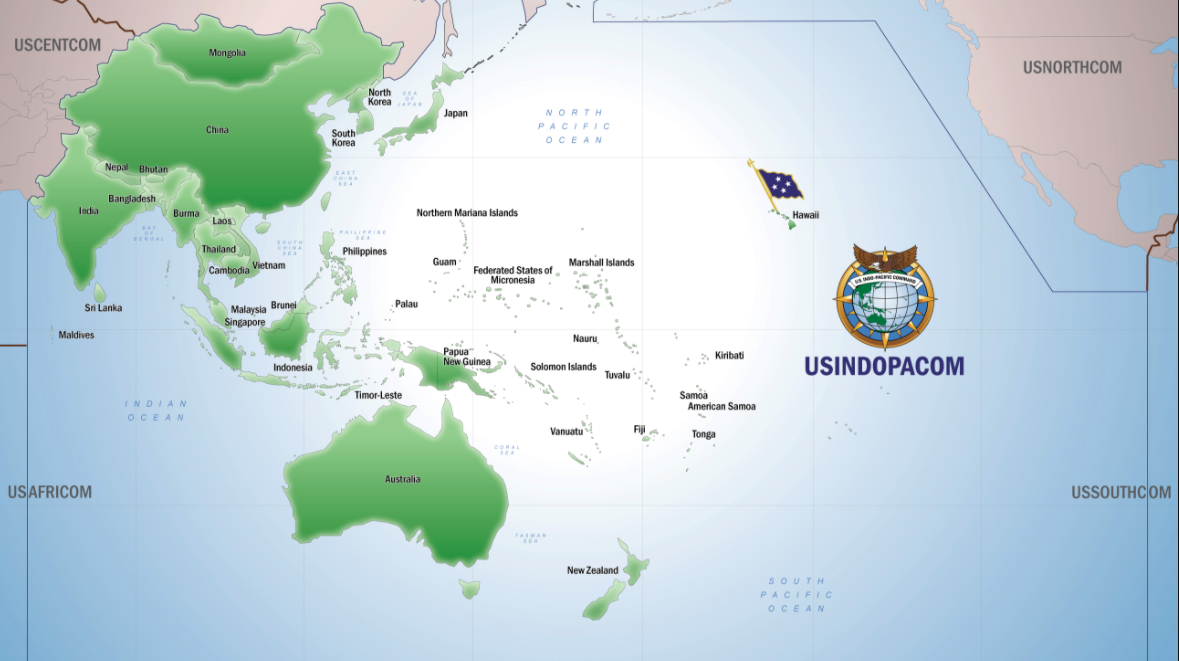What does the United States think of the Indo-Pacific

The National Security Council of the United States has declassified the strategic guidelines for the Indo-Pacific, which have guided the Trump administration over these three years. Giuseppe Gagliano's analysis
The decisive role that the Indo-Pacific plays in American strategy is always on the international stage.
Well, the National Security Council of the United States has declassified the strategic guidelines for the Indo-Pacific, which have guided the Trump administration in these three years.
What are the most relevant aspects that emerge from the introduction written by Robert O'Brien, assistant to President Trump for the NSC?
First, the speaker points out that historically the United States has always been a nation with an Indo-Pacific projection: “The United States is and always has been an Indo-Pacific nation. From our first merchant ships that left for China just eight years after the American Revolution, to establishing our first diplomatic presence in India in 1794 ″.
Secondly, according to the American narrative which is anything but neutral but clearly instrumental, the commitment of the United States in the region would have been built on a logic of peaceful cooperation that has over time only determined wealth and prosperity.
Thirdly, the Chinese posture is read as exclusively offensive , aimed at destabilizing the peaceful balance of power created by the US. This is a narrative that mirrors that made by both the State Department and NATO , which we have already discussed on these pages . More precisely, the Manichean perspective with which the conflict of power between China and the USA is interpreted – quite natural from the point of view of the conflictual dynamic between nations fighting for hegemony as much as it was that which saw Athens oppose Sparta – leads the speaker to define the Chinese presence as a malign influence.
Fourthly, O'Brien points to the US as the defenders of regional prosperity and stability, sovereignty, freedom of navigation and overflight and reciprocity in trade and investment; on the contrary, China is interpreted as a nation whose projection of power aims to subject the Indo-Pacific nations to the despotic and dystopian logic of the Chinese Communist Party . Once again – as in the days of Roosevelt and Reagan – the US presents itself as the defenders of individual rights and the rule of law. To disprove this bucolic narrative it would be enough to look at the American modus operandi in Asia during the Cold War similar to that put in place by the Empire of Evil, that is, the former USSR. In this regard, think of the Vietnam War or the Marcos dictatorship in the Philippines.
Fifth, Councilor O'Brien, in a rare burst of sincerity, admits that the US – being the largest economy in the world (but threatened by China we stressed), with the strongest armed forces (which have lost both in Vietnam than in Afghanistan ) and with a vibrant democracy (constantly threatened by security agencies as Snowden's uncomfortable revelations show ) – have a duty to lead the Indo-Pacific region. This motivation – with the appropriate lexical corrections – recalls that of European colonialism and, in particular, of English colonialism.
Sixthly, O'Brien confirms what has been emphasized several times on these pages, that is, that American hegemony can only take place on condition that anti-Chinese cooperation is achieved with Japan , Australia,Taiwan and Asean to be used as an anti-Chinese Trojan horse.
Finally – and we are at the seventh aspect – of particular importance is the fact that the analyst underlines how since 2007 India – under the administration of the then Prime Minister Manmohan Singh – has played – and continues to play – a key role in consolidating American hegemony .
Ultimately, this document is certainly relevant above all for two reasons: on the one hand because it wants to demonstrate the effectiveness of the Trump administration's strategy in the Indo-Pacific region (credibility questioned by the recent events on Capitol Hill) and by the other part because it constitutes a significant document from the point of view of propaganda, that is, on the way in which America perceives itself and on the way in which the United States would like the international elites to perceive its role in the world.
This is a machine translation from Italian language of a post published on Start Magazine at the URL https://www.startmag.it/mondo/che-cosa-pensano-gli-stati-uniti-indo-pacifico/ on Fri, 15 Jan 2021 08:58:52 +0000.
